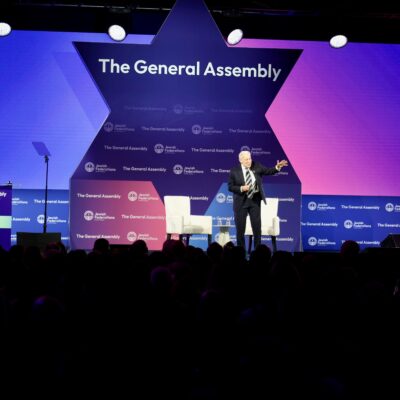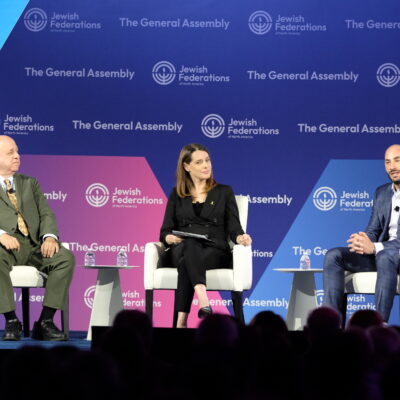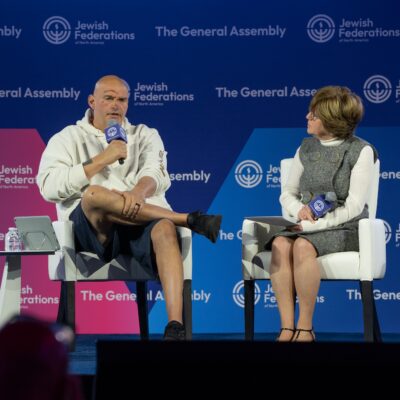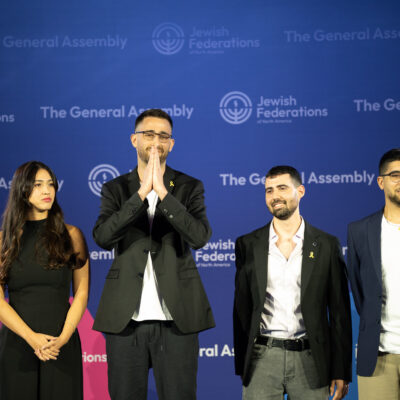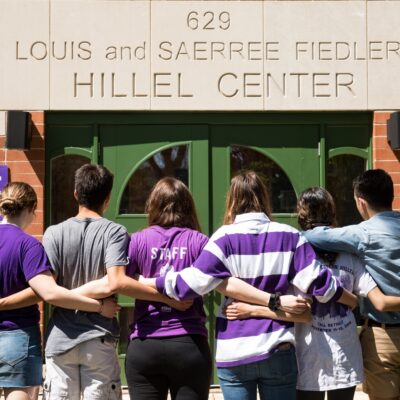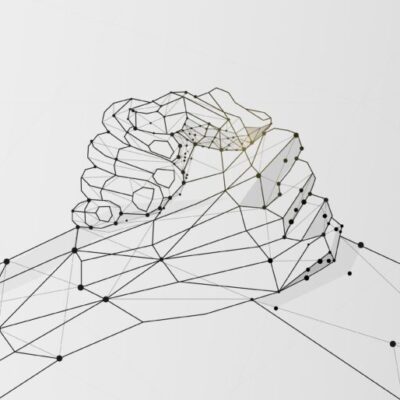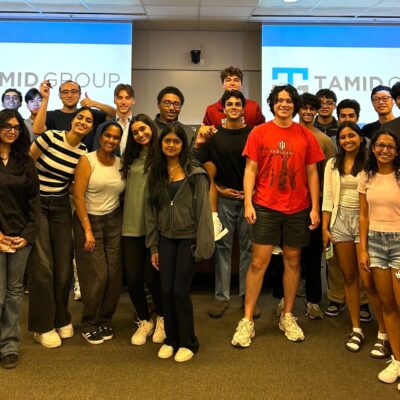WHAT YOU SHOULD KNOW
‘No atheists in foxholes’: Survey shows Israelis becoming more religious after 2 years of war
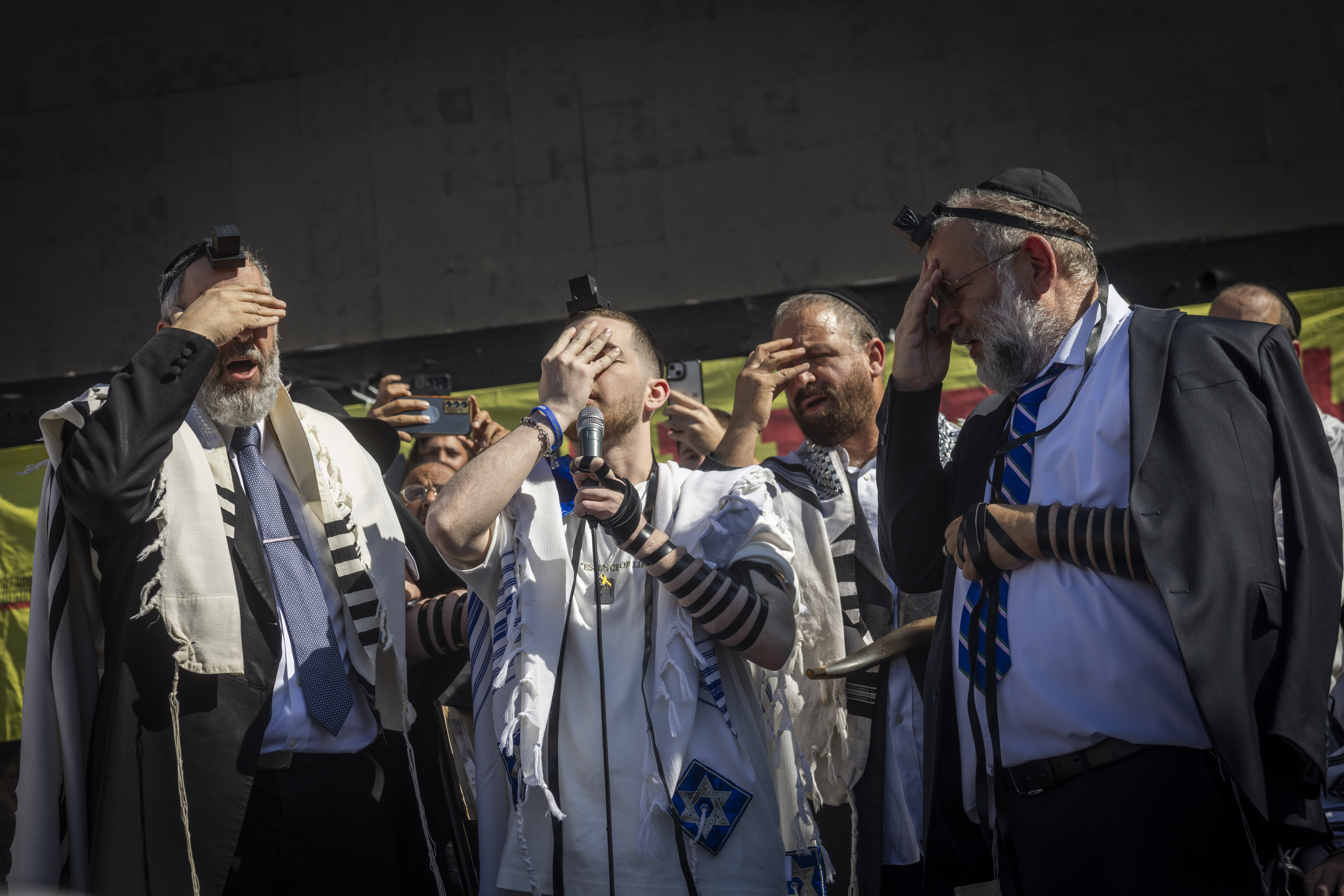
Chaim Goldberg/Flash90
Former hostage Bar Kupershtein and dozens of Jewish men lay tefillin at Hostage Square in Tel Aviv on Oct. 31, 2025.
The aphorism that there “are no atheists in foxholes” appears to be bearing out in Israel after two years of war that — with Iranian ballistic missile attacks, rocket fire from Lebanon and drone strikes from Yemen — effectively turned the entire country into a massive foxhole. A new study released yesterday by the Jerusalem-based Jewish People Policy Institute shows that Jewish Israelis, particularly young Israelis, are increasingly identifying as religious, as well as more politically right -wing.
“The data reflects what we sensed on the ground: Many in Israel — especially among the young — feel that the war has connected them more deeply to tradition and to Jewish identity. Not necessarily in a halachic way, but in ways that are more salient in their lives and across the public sphere,” Shuki Friedman, CEO of the Jewish People Policy Institute, said in the report. “When Sasson Shaulov’s hit song ‘Tamid Ohev Oti’ ([God] Always Loves Me) — a religious song by a rabbi — gets tens of millions of plays on YouTube, it captures the spirit of the moment. Alongside this, Israelis, especially young people, have shifted to the right. Israel after the war is more traditional and more right-leaning. At this stage, it is impossible to know whether this is a passing trend, or a deeper and longer-term change.”
Though the methodologies and questions differ — so the two cannot be neatly compared — the JPPI study appears to show curious cultural differences between the increased religious engagement in Israel and the “Surge” data from the United States. Unlike in the “Surge” in the U.S., which was seen most strongly among the least engaged and most engaged parts of the Jewish community, the Israeli rise in Jewish engagement is seen most significantly among those in the middle, people who identified as “traditional, but not so religious” or “traditional, somewhat religious.” Among secular Jews, there was a decline in both religious observance and belief, according to the JPPI study.
Overall, one-third of respondents under age 25 said that they perform more religious practices than in the past, including going to synagogue, studying Torah, putting on tefillin or lighting Shabbat candles. Among “traditional, but not so religious,” the rise is higher than average, with 37% reporting an increase in religious practices. And among young adults who identified as “traditional, somewhat religious,” 51% said they observed more religious customs as a result of the past two years of war.
In addition to performing additional religious actions, the survey found that Jewish Israelis are growing increasingly spiritual, with more than a quarter, 28%, saying that their faith in God has been strengthened, while 9% said their faith in God has declined.
Respondents also indicated that they believed that this rising religiosity was a larger trend, with 49% of Jewish Israelis saying they think that their friends and relatives have grown more religious, compared to 35% who said they’ve stayed the same and 9% who said their friends’ and family’s faith had weakened. This was even more pronounced among young people, with 58% saying that their peers’ faith has strengthened and 25% saying it’s stayed the same.
This rise in religious observance is not an exclusively Jewish phenomenon. Arab Israelis also reported increased religious observance and belief, with 32% of Arab respondents saying that they prayed more frequently, 12% saying they dressed more modestly and 10% saying they attended mosque or church more regularly. More than a third of Arab Israelis, 37%, said that their faith in God had gotten stronger.
Unique to Jewish Israelis, however, was a rightward political drift in response to the Oct. 7 terror attacks and past two years of war. Among Jewish Israelis, the share self-identifying as “hard right” nearly doubled, from 11% to 19%, and those identifying as “right” rose from 24% to 28%. “This rightward shift is evident among Jewish youth across almost every political identification cohort,” according to JPPI researchers Shmuel Rosner, Noah Slepkov and David Steinberg.
Among Arab respondents, there was “virtually no change” in political affiliation as a result of the war, with center, left and right remaining at roughly the same levels as before.

 Add EJP on Google
Add EJP on Google
